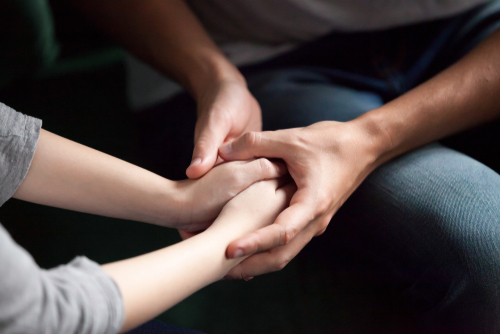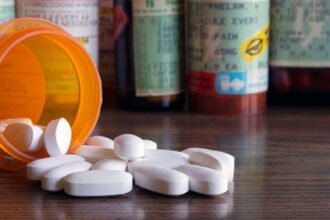Beating addiction is a hard battle, and it throws unique challenges at family members and friends. Addiction impacts users in significant ways. However, it’s crucial to consider how it affects loved ones.
In 2017, more than 19 million Americans suffered from addiction. You likely know someone who played the enabler, scapegoat or various other roles. Some people long for the status-quo to return and do everything they can to promote rehab. Others respond by denying or supplying the habit. Between these two roles exists a faction of relatives who shun the family member and become withdrawn or hostile.
Dealing with substance abuse is complicated. Every family responds differently, and the effects can either ruin or strengthen relationships.
Immediate and Extended Family
Children suffer when living with people who abuse drugs, especially if the user is a parent. Kids growing up in homes of addiction are three times more likely to experience abuse and neglect. They may seek unhealthy avenues to deal with stress and depression, which leaves them vulnerable to predators. It’s not uncommon for these adolescents to grow up and develop substance abuse disorders.
They may act out in school to receive the attention they don’t get at home. Others do it because they’re angry at the addicted relative — or at the world itself — and don’t know how to manage their emotions. Some children do the opposite and withdraw from everyone, blaming themselves for their relative’s drug use. Behavioral issues and learning disorders are common amongst children exposed to drug use, especially if the mother experienced addiction during pregnancy.
Parents find managing underage addicts difficult, especially considering how tumultuous the age can be. They may feel tremendous guilt over not stopping or recognizing the issue before it got out of hand. Much of teen addiction, however, stems from external peer influence or genetic predisposition — meaning it’s not always apparent until it’s underway. Alcohol and marijuana are two substances many teens start with, and they’re often accessible through friends.
Childcare falls to extended family members when parents are unfit to care for kids. This sudden transition of duties can overtax finances and lead them to struggle with child-rearing. In some cases, children enter foster care because no one can raise them. Considering that over 8 million children live with at least one addicted parent, addiction plays a major role in separating families.
Physical Health
Addiction doesn’t only impact the health of the user — everyone around them suffers, too. Living in a stressful environment can cause a person’s sympathetic nervous system to adapt to constant fight-or-flight mode. Cortisol and adrenaline become staple hormones in the body’s functions and the brain’s structure changes. The brain transforms when under chronic stress, shrinking in size and losing vital neural connections. Areas responsible for memory and learning diminish in size and function.
Unchecked stress levels can exacerbate or cause conditions like high blood pressure, diabetes and heart disease. Virtually every area of the body feels the brunt of chronic stress — from areas of the brain to the reproductive system.
Nicotine addictions cause secondhand symptoms worse than what smokers experience. Loved ones exposed to secondhand smoke have an increased risk of heart attacks, lung cancer, stroke and respiratory infections. It causes more than 41,000 deaths each year, killing more than 2 million between 1964 and 2014.
Mental Health
Relatives can easily fall into depression or anxiety from worrying about their loved one’s drug use. If efforts to dissuade them don’t succeed, they might blame themselves or become angry with others for not trying hard enough. School-age children often feel embarrassed by addiction and isolate themselves from peers. This isolation drives them into further sadness, as they have few people to glean support from.
Adolescents who grow up around substance abuse experience mental health issues in adulthood, such as low-self esteem and dysfunctional attachments. They might mimic codependent behaviors or show an excessive need for control. This phenomenon can stem from their lack of control over a loved one’s addiction — they overcompensate by micro-managing the lives of others.
Dysfunctional attachment styles include avoidant, ambivalent and disorganized. These insecure attachments arise from parental care characterized by rejection or unpredictability. Children of addicted parents never know what mood their caregiver will be in. Receiving hot and cold treatment affects their ability to connect with others and show affection.
Familial Abuse
Drug abuse exposes the entire family to violence. Arguments occur due to the user’s refusal to seek help, and these disagreements can escalate with the presence of drugs or alcohol. Many domestic abuse cases involve mind-altering substances. On days of heavy substance use, physical violence is 11 times more likely to occur.
Someone addicted to alcohol may come home after a night of drinking and physically assault their spouse or children. This behavior can leave family members conflicted and emotionally distraught, especially if the addict doesn’t act that way when sober. Fear of retaliation keeps many victims from leaving their abusers, in addition to the belief that they’ll change once they quit the habit.
Victims of sexual or domestic abuse are more likely to turn to drugs to self-medicate, creating a vicious cycle. Generations of families suffer patterns of drug use and familial violence. All it takes is one person to quit the habit or break the cycle. By doing this, you secure a better future for your family and the relatives you love.
Fight Addiction for Your Family’s Well-Being
Has addiction upended your home? Perhaps you have a loved one who refuses to go to rehab, or a parent enabling unhealthy behavior. Luckily, the abuse doesn’t have to reign. By recognizing harmful responses in yourself and others, you can create an environment conducive to recovery.
For example, an enabling parent might benefit from therapy sessions where they speak their mind and gain helpful third-party feedback. If a person is unwilling to go to rehab, consider an out-patient program as an alternative.
Beating addiction is a struggle. Transform it into a team effort with support and healthy encouragement.










